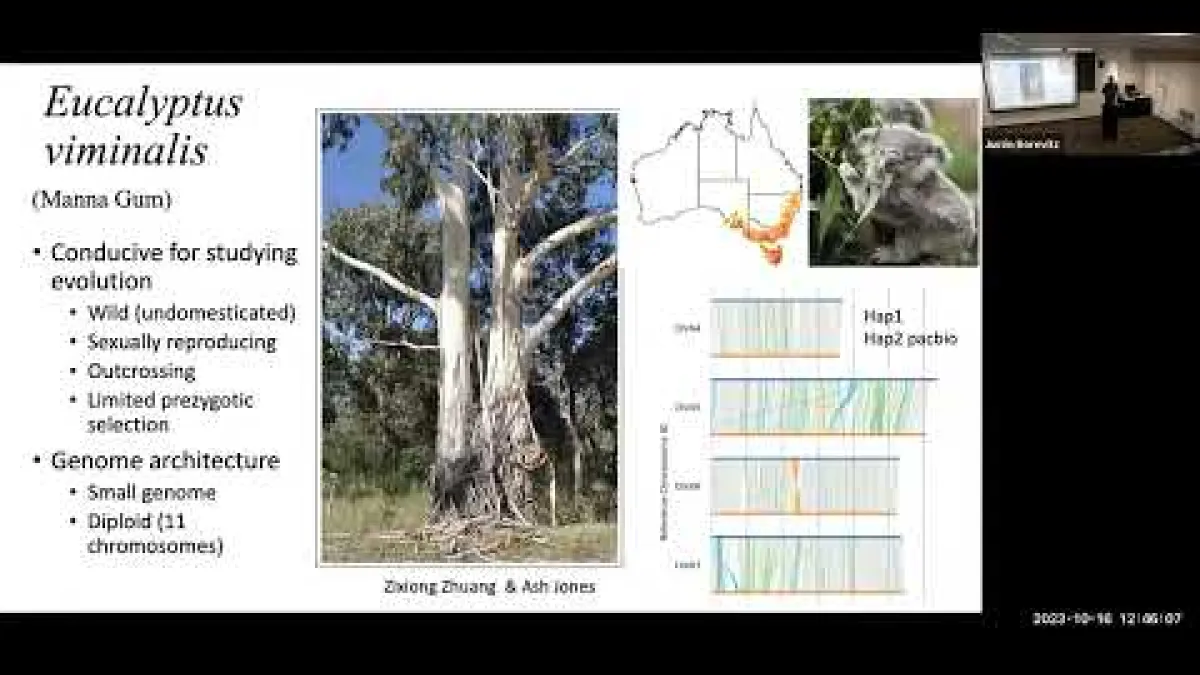RSB Director's Seminar: Genes, Trees & Forests: new paradigms for 21st century biology
Biodiversity rests on a foundation of adaptive and neutral variation within populations and species, that interact in communities or coexist in assemblages, to define ecosystems that provide habitat and life support services including a stable climate. New technologies span this biodiversity pyramid and allow rapid and
Speakers
Event series
Content navigation
Description

Biodiversity rests on a foundation of adaptive and neutral variation within populations and species, that interact in communities or coexist in assemblages, to define ecosystems that provide habitat and life support services including a stable climate. New technologies span this biodiversity pyramid and allow rapid and wide scale assessment, linking genomic and trait variation among individuals of foundation species. This enables direct prediction, selection and management of ecosystem function.
I will present my labs work over the past 10 years dissecting functional genomic variation among radiating lineages of Eucalyptus revealing parallel and convergent evolution in climate adaptive traits. We use denovo assembly, resequencing, root and shoot phenomics on seedlings, provenance trials, GWAS and landscape genomics to identify adaptive alleles apart from residual population structure, allowing managers to select suitable source seeds and saplings for forest restoration or agroforestry in changing climate and soil conditions.
The research demonstrates a tractable genes to ecosystems paradigm to direct biodiversity management as landscapes transform in a turbulent 21st century.
Justin Borevitz obtained his PhD in 2002 from the University of California at San Diego with Joanne Chory studying Natural Variation in Arabidopsis light response. He performed postdoctoral research with Joseph Ecker (2002-2004) at the Salk Institute studying genomic diversity in Arabidopsis using tiling arrays. From 2004 until 2012 he was an Assistant and Associate Professor in the Dept of Ecology and Evolution at the University of Chicago. In 2012 he moved to the Australian National University and became full Professor in 2014. Research focuses on Genome Wide Association Studies of growth and developmental traits under simulated climates in plant models Arabidopsis and Brachypodium. Landscape genomics is being used in crops and Eucalyptus foundation species. The goal is to identify the genetic basis of climate adaptation to predict and select adaptive genotypes for changing and challenging growing conditions.
Location
Eucalyptus Seminar Room, Level 2, RN Robertson Building 46
or
Please click the link below to join the webinar:
https://anu.zoom.us/j/87846417100?pwd=cGlDTGVFRGxCbTYyWlhNSGRWbnQ1UT09
Passcode: 416890

